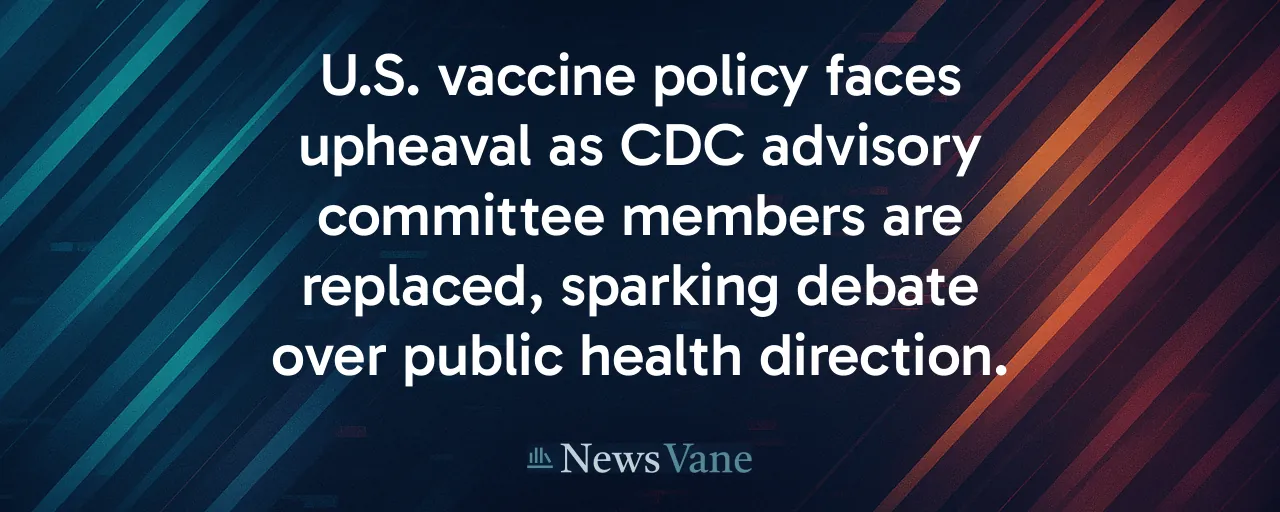A Jolt to Vaccine Leadership
On June 9, 2025, U.S. Health and Human Services Secretary Robert F. Kennedy Jr. reshaped the nation's vaccine policy in one swift move. He replaced all 17 voting members of the Centers for Disease Control and Prevention's Advisory Committee on Immunization Practices (ACIP), citing concerns about conflicts of interest. With the committee's next meeting just weeks away, this decision has stirred intense debate about the future of public health in America.
Since 1964, ACIP has guided the nation's immunization efforts, determining which vaccines are recommended, covered by insurance, and provided free to millions of children through programs like Vaccines for Children. Its members, chosen for their expertise and vetted for independence, include doctors and scientists, some from state health agencies. Their abrupt replacement has raised alarms about how vaccine policies will evolve amid already shaky public confidence.
States Stand Firm on Evidence
Leaders from California, Oregon, and Washington wasted no time responding. In a joint statement, their governors voiced serious concerns about the reliability of federal vaccine guidance and committed to prioritizing scientific evidence to safeguard public health. These states, known for strong vaccination programs, stressed the need to protect vulnerable groups, including infants, pregnant individuals, and those at higher risk for severe illness.
To uphold rigorous standards, these states plan to lean on the Western States Scientific Safety Review Workgroup, established during the pandemic. By partnering with medical experts and health organizations, they aim to ensure their recommendations remain grounded in the best available data, even as federal changes create uncertainty.
Trust in Health Agencies Frays
This upheaval arrives at a challenging time. Public faith in health institutions has been eroding, with only 61 percent of adults trusting CDC recommendations in January 2025, a drop from 66 percent two years earlier, per KFF polling. Political divides deepen the rift: 78 percent of Democrats trust the CDC, while only 39 percent of Republicans do. Many point to political interference and unclear messaging as reasons for their doubts.
Some view Kennedy's decision as a necessary step to address perceived flaws in the system, particularly concerns about industry influence. However, health experts warn that replacing ACIP's members could further weaken trust, especially as the U.S. faces a measles outbreak with 800 cases across 23 states and over 8,000 pertussis cases this year. Delays in vaccine recommendations might also disrupt insurance coverage, limiting access for millions. Conservative officials have framed vaccines as a matter of individual liberty and state rights, and this move has sparked criticism for being politically motivated.
Science Caught in the Crosshairs
Political pressures on scientific advisory groups are not new. From the dissolution of the President's Science Advisory Committee in 1973 to recent cuts to EPA and NASA panels, history shows that reshaping expert bodies can disrupt evidence-based decisions. Such moves often lead to delays and questions about credibility, particularly in public health.
Vaccine policy faces unique challenges. Misinformation, from debunked claims about autism to false narratives about infertility, has driven hesitancy, contributing to resurgent diseases like measles. Research links exposure to these falsehoods on social media to lower vaccination rates. The ACIP overhaul could amplify these issues, as new members, selected by Kennedy, will influence policies that shape school mandates, insurance coverage, and global health efforts.
The Road Ahead for Public Health
The consequences are already unfolding. ACIP's June 25-27 meeting will proceed with new members, prompting questions about the transparency and quality of future recommendations. States, which hold significant power over health policy, may choose to diverge from federal guidance, leading to inconsistent immunization standards across the country. This tension between state and federal authority, rooted in the 10th Amendment, has long shaped public health but feels especially pronounced now.
For families, doctors, and insurers, the stakes are real. Clear, trusted vaccine guidance is essential for parents making decisions, physicians providing care, and insurers determining coverage. If confidence in this system falters, the risk of disease outbreaks and economic burdens grows.
Yet there is reason for optimism. Initiatives like the University of Minnesota's Vaccine Integrity Project and state-led scientific reviews are stepping in to bridge the gap. Rebuilding trust will demand transparency, a firm commitment to science, and a focus on health over political agendas. As the nation navigates this uncertainty, the hope is that public health can emerge stronger.
